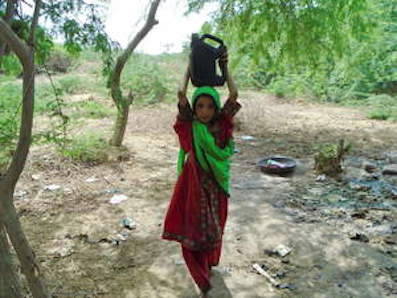KBzine: the original kitchen and bathroom industry e-news - since 2002
22nd December 2020
We strongly recommend viewing KBzine full size in your web browser. Click our masthead above to visit our website version.
WaterAid and H&M Foundation join forces for sustainable water, toilets and hygiene in poor communities
 On Tuesday, the H&M Foundation and WaterAid embarked on the second phase of their global partnership for safe water, sanitation and hygiene in some of the world's poorest communities, with the goal of achieving long-term transformational change and improved living conditions.
On Tuesday, the H&M Foundation and WaterAid embarked on the second phase of their global partnership for safe water, sanitation and hygiene in some of the world's poorest communities, with the goal of achieving long-term transformational change and improved living conditions.
The programme expands on an initiative that began in 2014 and broadens the scope with a holistic approach to provide sustainable access to water and sanitation services to people in their communities, in their homes, at healthcare facilities and in schools.
The primary goal of this global programme is to improve the wellbeing and living conditions for some of the world's poorest people by focusing on sustainable solutions. At the local level, the programme will be aimed at four target countries; Cambodia, Ethiopia, Pakistan and Uganda. Although the partnership's goals are similar in all four countries, given varying cultural, social and economic contexts, this will be done through different approaches and activities.
By drawing on best practices, case studies and lessons learned from the work in these countries, WaterAid will seek to further the sustainability agenda globally through advocacy and the influencing of key stakeholders on national and global levels for sustainable water, sanitation and hygiene services.
WaterAid and the H&M Foundation partnered in 2014 on a three-year programme to bring transformational change for more than 250,000 students across the world. The programme also engaged a wide range of partners and helped influence and update national education policies in the countries where we were working, as well as the global Sustainable Development Goals. The H&M Foundation donated 60 million SEK to WaterAid between 2014-2017, and now embarking on the second phase, the foundation will donate another 60 million SEK between 2017-2020.
"With funding from the H&M Foundation, we will be able to transform the lives of some of the world's poorest people by improving their wellbeing and living conditions - not only today, but tomorrow and for many years to come," explains Jennifer Membreno, WaterAid's associate director of corporate partnerships.
"The programme will showcase how targeted efforts can successfully contribute to the fulfilment of the Sustainable Development Goals and WaterAid's vision of a world where everyone, everywhere, will have safe water, decent toilets and improved hygiene."
Diana Amini, global manager of the H&M Foundation, comments on the partnership with WaterAid:
"Lack of access to water, sanitation and hygiene is a huge global issue and a priority for the H&M Foundation. But it's not something that any single organisation or company can solve -- it requires global collaboration by governments, NGOs, civil societies and businesses. By partnering with WaterAid we have been able to make a real difference to individuals and communities, but also to contribute to the systemic change needed globally and nationally."
Key statistics:
* 663 million people in the world - one in 10 - do not have clean water
* Almost 2.4 billion people in the world - one in three - live without improved sanitation
* Diarrhoea is the second biggest killer of children under five years old globally. Around 315,000 children die each year from diarrhoeal diseases caused by dirty water and poor sanitation. That's almost 900 children each day, or one child every two minutes. Nearly nine out of 10 cases of diarrhoea can be prevented by safe water, sanitation and hygiene
* Every year diseases caused by dirty water kill more people than all forms of violence, including war. Some 43% of these deaths caused by disease are children under five
* Globally, just 31% of schools have clean water and 34% have adequate toilets.
* Access to clean water and sanitation could save approximately 842,000 lives every year
* More than one out of three hospitals in developing countries don't have clean water and soap for handwashing
* If everyone everywhere had clean water, the number of diarrhoeal deaths would be cut by 34%
* For every $1 invested in water and sanitation, an average of $4 is returned in increased productivity
* Just $25 can help provide one person with access to safe water
Image: Nine-year-old Benazir, carrying water she has collected from a pump which is far from her home. Thatta, Sindh Province, Pakistan
2nd June 2017








